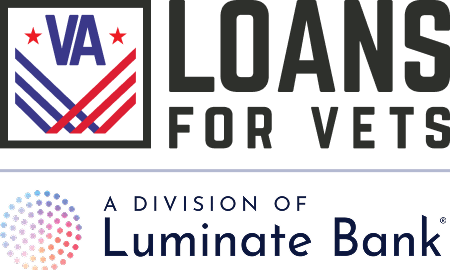Buying a home can be an exciting venture, but it can also be overwhelming when you start to consider financing options. It can sometimes be difficult to gather enough information to determine which loan option is best for you.
If you have served in the military or are a surviving spouse of someone who served, it is important to know the differences between a VA loan and an FHA loan so that you can determine which is going to provide the most benefit to you and protect yourself from lenders who might steer you in the wrong direction.
These loans are similar in that they are both backed by the federal government to provide assistance to individuals purchasing a primary residence. However, you may find that one is a far greater choice for your situation than the other.
To prepare to look at comparisons between FHA and VA loans, let’s first gain an understanding of each of these loan options.
What is a VA Loan?
VA loans are the most competitive loan option on the marketplace and are a benefit available to veterans, active duty service members, and their surviving spouses to help them purchase a home. This type of loan is backed by the U.S. Department of Veterans Affairs (VA) and available through private mortgage lenders.
A benefit of the VA loan program is that it can be used multiple times. Whether you are a first time homebuyer or have outgrown your current home, you can use VA loans multiple times to purchase a primary residence. For example, if you have outgrown your current home, once you sell it and pay off the loan you can then use another VA loan to purchase a new house.
For active service members who receive orders to move to a different location it may be possible to use a VA loan to purchase a second home.
What is an FHA Loan?
FHA loans are of benefit to people who would not normally be able to qualify for a conventional loan. Backed by the U.S. Department of Housing and Urban Development (HUD), this type of loan can also be applied for multiple times throughout your lifetime. However, like VA loans, FHA loans are intended to be used for primary residences only so you would usually only be able to have one at a time.
One benefit of housing and urban development home loans over department of veterans affairs home loans is that they are available to the general public.
VA Loans vs. FHA Loans: Which is Best for Your New Home?
There are several categories to look at when considering which loan to use to purchase your dream home. To discover the pros and cons of VA loans and FHA loans, and determine which will be the better option for you, check out Jimmy’s video or continue reading below.
Down Payments
While both VA and FHA loans provide assistance to people struggling to come up with a down payment to purchase a home, VA loans provide the most benefit in this area.
VA loans do not have any down payment requirements for any purchase price. You just have to qualify via income and credit. However, if you have an existing VA loan and are hoping to apply for a second you may have to come up with a down payment for the new loan.
FHA loan requirements include a down payment in order to qualify. This is also true with conventional loans. The percentage can range from 3-20%, depending on your credit score.
Mortgage Insurance
VA loans do not require private mortgage insurance (PMI). This makes your monthly payment for a loan significantly less than most FHA or conventional loans.
FHA loans do require a mortgage insurance premium (MIP).
Loan Rates & Fees
For both VA and FHA loans, your debt-to-income ratio, credit score, and down payment can all have an impact on the interest rate you receive. However, VA loans offer a fixed interest rate while FHA loans can have either fixed or adjustable interest rates.
VA loan rates tend to be more competitive than FHA and conventional loans since interest rates and monthly payments can be lower due to lack of the PMI requirement.
There is a VA funding fee included with this type of loan which helps fund the VA loan program. This fee is a one time payment that can either be paid at closing or rolled into the overall loan. It provides protection for lenders and the VA in the event of a homebuyer defaulting on their loan.
The fee for first time homebuyers is 2.3% of the loan (if they are making a down payment that is less than 5%), and 3.6% on any loans after that. Making a down payment, even though it is not required, can help lower this fee. *It is possible for some individuals to qualify for an exemption from this fee.
Minimum Credit Scores
Minimum credit score requirements for a home loan will depend on the lender you choose. However, your credit score ultimately has an impact on the rates you receive from your lender.
VA loan credit score requirements can vary as they are set by the lender and not the VA. Many across the country will make their minimum requirement as low as a 620 credit score.
FHA loans may have lower credit score requirements than VA loans, with the typical minimum credit score set at 580 and even lower in some cases. However, the lower the score the higher the drawbacks. In order to qualify for an FHA loan with a low score, you will see the required down payment amount rise.
Take the time to compare loan rates and fees between both types of loans before assuming the FHA loan is best because of the low credit score requirements.
Loan Limits
VA loan limits are dependent on the county where the home is located and how many units it contains. Units are considered separate living spaces that allow occupants to live separately. Locations with a higher cost of living equate to a higher loan limit.
The VA has entitlements that can impact the loan limits that borrowers are eligible for, one being basic entitlement and the other bonus entitlement.
FHA loan limits are based on the home’s location and size.
Loan Eligibility
FHA loans are more accessible than VA loans from the perspective of being available to the general public. As long as you have a social security number you may be eligible for an FHA loan.
Only active duty service members, veterans, and surviving spouses who meet the length-of-service requirements may qualify for this type of loan. However, these are the qualifications set forth by the VA, who is only backing the loan. You must also qualify with a mortgage lender, just like with FHA loans which are backed by the HUD.
The Best Loan for Service Members and their Families
If you are a veteran or active-duty service member, a VA home loan is the best option for you and your family. VA Loans for Vets was founded by a veteran to provide the assistance you need to obtain eligibility and purchase your dream home. Find out if you are eligible for a VA loan today by calling us at 602-908-5849.



